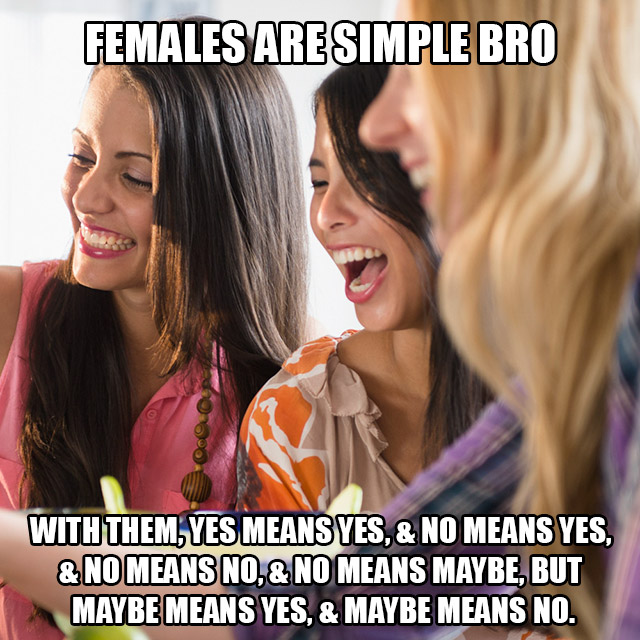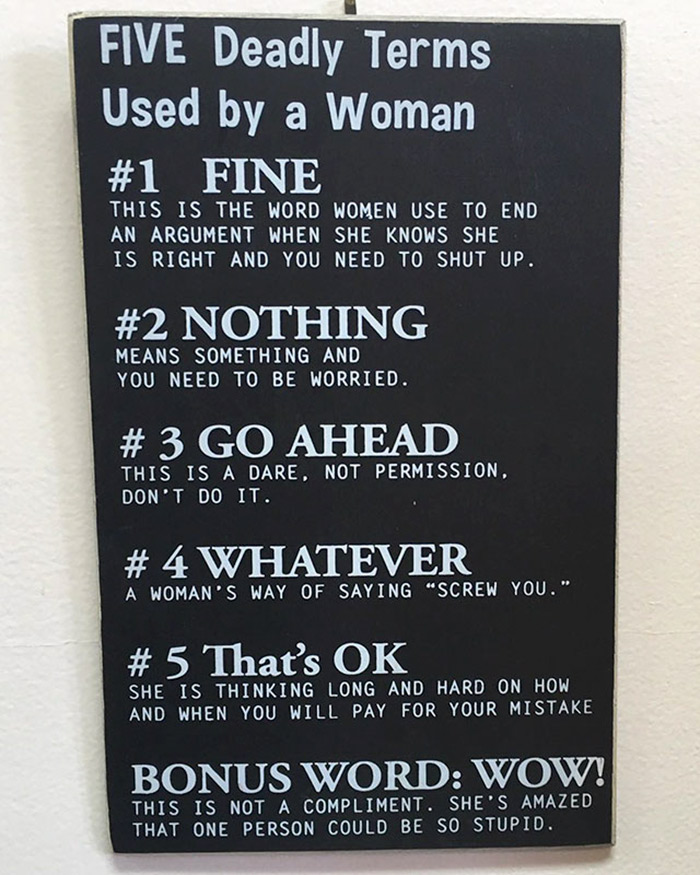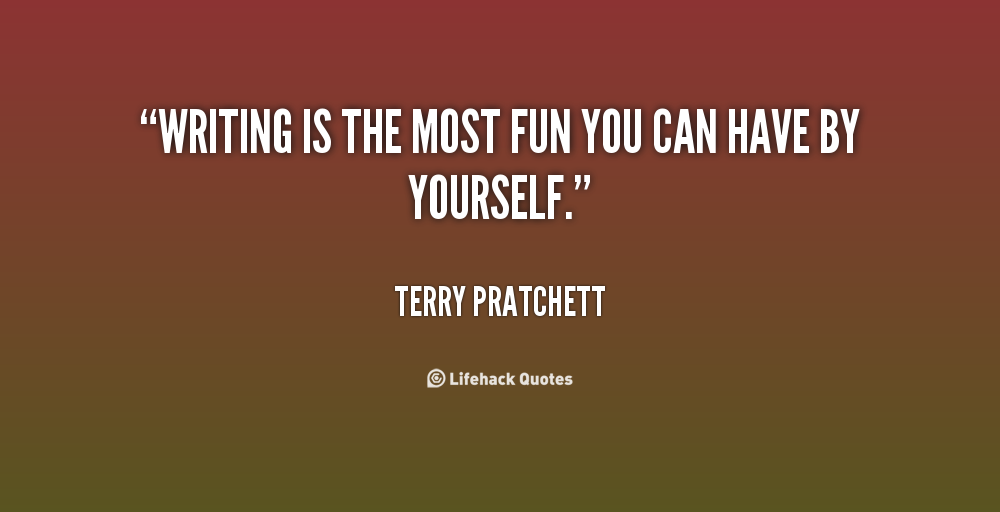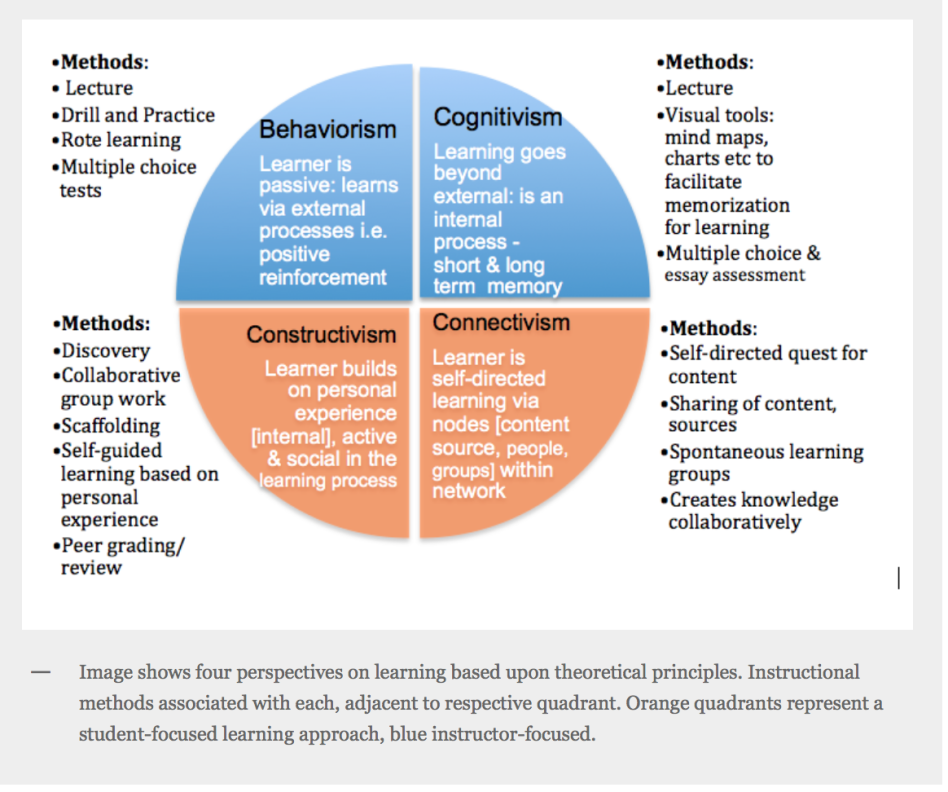Arguing with a woman is pointless
10 reasons you should avoid arguments with your girlfriend
Some weeks ago, some men got into an argument on why it’s pointless arguing with a woman. I was of the opinion that arguments are good especially for healthy relationships. No relationship is 100% rosy. Communication is never a wasted effort. Then my friend said to me, Chinenye, why don’t you interview people on reasons why a man should avoid arguments with his girlfriend and I got interesting feedbacks and comments which I would be sharing with you.
1. ATTENTION: Yes, we women naturally love attention from our various boo, “uncle”, “boyfriend”, “maga”, whatever the case may be. We hate being ignored so to spice it up sometimes, we just look for a little thing to get upset about. Instead of getting upset at her, just say “Baby I’m sorry”. That should do the trick as she just wanted a little attention from you.
2. SHE’S ALWAYS RIGHT: The truth is even if we know we are not right, the fact that the argument involves “the boyfriend”, just let it go! Guys please, whenever you argue with your girlfriend, always get your facts right because if she happens to be right, haha!! You won’t hear the last of it!
3. SHE ALWAYS HAS TO WIN: She always has to win the argument and prove her point. That is why we have issues of when the guy is at fault but still finds himself saying “Baby, I’m sorry”. As said earlier, these are the three magic words if you do not want to get frustrated because she won’t stop until she wins.
4. HER PITCH IS HIGHER THAN YOURS: If you are the calm-headed guy who does not like “wahala”, just avoid arguing with your babe or any woman at all. It’s safer for you because whenever ladies are upset, we are programmed to raise our voices. That’s why you have situations when an argument is about to reach its peak and the lady raises her voice.
Then the guy says “Tola, reduce your voice, why are you shouting!” but Tola responds “This is my natural voice”. I am sure this sounds familiar. Women have a natural high pitched voice when arguing. It’s not our fault!
5. SHE IS PROGRAMMAMED TO TALK BACK: If you think you want to talk to a lady, always be ready to hear her own side of the story whether you like it or not. We are naturally defensive. Some women even go as far as using abusive words.
We are naturally defensive. Some women even go as far as using abusive words.
Women are not log of woods and figure heads who you expect to swallow every word. Women are naturally competitive and don’t want to be seen as weak, so this comes natural for us. So why start an argument if you know you can’t tolerate this, just walk away homie!
Arguments are exhausting. When you see it’s getting to the peak of the argument, remember “Walk away homie! Or don’t start if you cannot finish it. As much as we annoy each other, we cannot do without each other. Imagine a world with only men or only women?
6. SHE IS EMOTIONAL: Women act with their hearts. When she says those spiteful words to you, half the time, she does not mean them. What man wants to be in a battlefield of tears? When it is getting to this stage, as I said earlier, its two options. Apologise even if she’s wrong, or if you have a bad temper and you can’t handle it, just walk away.
7. REVERSE PSYCHOLOGY: Something that was her fault automatically becomes your fault. It’s a gift we have. Even you as the guy never figured it! In the middle of the argument, you start to believe you were the one at fault.
8. SHE DOESN’T LEAVE ANY STONE UNTURNED: When in a serious argument with her boyfriend would never say A and not say B. We make sure all the stones are left unturned.
9. FORGIVE BUT NOT FORGET: This depends on the weight of the argument. During an argument, we tell you that thing you did in relation to this new problem you have created. Detail by detail. Well we can’t help this one. Is it really true when people say ”lets forgive and forget”. Well, women don’t. I can’t explain this but we just don’t.
10. IT’S POINTLESS: At the end of the day, arguments are exhausting, so why start it in the first place. The guys realise this, after the rattling and strive to show who is in charge.
According to Umar Sule, a business development executive and a relationship expert, “Women like to be in control, so a wise man would make her feel she is in control, even if she isn’t to avoid arguments,” he said.
Support PREMIUM TIMES' journalism of integrity and credibility
Good journalism costs a lot of money. Yet only good journalism can ensure the possibility of a good society, an accountable democracy, and a transparent government.
For continued free access to the best investigative journalism in the country we ask you to consider making a modest support to this noble endeavour.
By contributing to PREMIUM TIMES, you are helping to sustain a journalism of relevance and ensuring it remains free and available to all.
Donate
TEXT AD: Call Willie - +2348098788999
Why men can’t win an argument with a woman
I recently saw a number of posts that talk about the inability of men to win an argument with a woman. Most were pretty disparaging of women. Some of these articles were funny and written with humor, however most implied somehow that women are overbearing, impossible to deal with, illogical, and unrealistic.
Most were pretty disparaging of women. Some of these articles were funny and written with humor, however most implied somehow that women are overbearing, impossible to deal with, illogical, and unrealistic.
Some stated that women ‘speak nonsense’ and ‘repeat themselves’. They also made points such as ‘women base their arguments on emotionality only.’ Several discussed specific techniques that women use for manipulation.
I even found a post on tips for winning arguments with women. One suggested that since you can’t win, ever, you should just change the subject, and get really harsh to get her to stop.
Mostly I find this stuff funny and ridiculous. But it really got me thinking. Why is this myth and belief about fighting with women so prevalent?
The problem is the premise. I really don’t want to be in an argument at all. I don’t want to compete. I don’t want there to be a winner or a loser. I certainly can enjoy a good debate, but only about ‘topics’ and ‘content’. I do NOT want to debate or argue about my feelings, my emotions, charged topics, my perspective, values or beliefs, etc. I am looking to be heard, to be understood and to understand, and to gain closeness and intimacy through a healthy conversation about tough issues.
I do NOT want to debate or argue about my feelings, my emotions, charged topics, my perspective, values or beliefs, etc. I am looking to be heard, to be understood and to understand, and to gain closeness and intimacy through a healthy conversation about tough issues.
I am wanting to engage my partner in an interactive discussion in which both of our perspectives are considered, respected and valued. Through conversation and mutual understanding, I am hoping that together we can create solutions that will work for both of us.
Working through issues to me is not a zero sum game where one person wins and the other loses. The concept of ‘winning’ an argument with my husband goes against what I value. If one of us ‘wins’ basically, we both lose.
On the other hand, my husband loves to debate and compete at just about everything. It is really a fun experience for him to challenge ideas, beliefs, and concepts. Through healthy argument and battling out issues, he is better able to integrate with new information, and better able to understand himself and me. He reaches conclusions by evaluating the facts and information, eliminating anything irrelevant, and then summarizing the core of the problem.
He reaches conclusions by evaluating the facts and information, eliminating anything irrelevant, and then summarizing the core of the problem.
For him, this process of debate is enlightening. For me, it is discounting and painful.
Arguments then ensue because I present some idea, feeling, or issue for discussion. I simply want to be heard and understood. I want empathy, relationship and communication. I am willing to give those same things. However my husband’s first natural response is to question what I am saying. He wants to find out if it is ‘rational’, if it makes sense, or if it has validity. To him, a point is valid if it holds up under scrutiny and argument. One of his assumptions is that if he can figure out why I feel a certain way and maybe if I understand the situation better, I might feel differently. In his world, he is just trying to understand what I am talking about; he doesn’t even experience himself as arguing.
His questioning and trying to figure out the ‘why’s’ of what is going on with me manage to piss me off in just the right way (of course), as you can imagine. So an actual argument then ensues.
So an actual argument then ensues.
For me however, the argument is not about the issue I originally presented, but rather, I am arguing for my need to be heard and understood. I am doing everything I can do to try to get him to hear me and to stop arguing with me.
I don’t want it to be rational, or exact, or fit into some box. I just want him to hear beyond my words to what I am really saying (which, by the way, he is really good at and totally capable of). I am arguing trying to get out of the argument.
I do not agree with the belief that I should be logical, unemotional, and have my points all laid out in a perfect manner like my master’s thesis. I am not even trying to do that, nor do I have a goal to do that. My raw experience is often not rational. I know that. It just is what it is. Expressing myself is what helps me clear and complete with an experience so that I can then find solutions, later. It took me many years of personal growth to learn to express myself freely yet responsibly, and I am glad to be able to do that well.
My husband, on the other hand, is arguing to try to get me to see another perspective, or to be more rational, or to change my mind. At that point in time, I am generally not interested or willing to see another perspective. I do not want to be logical, nor is there anything he could say to change my mind. So yes, I do feel emotional and upset, and yes, I do repeat my point which is ‘why the heck are we fighting when I just shared some feelings?’ and yes I am frustrated to tears and the point of insanity at having this same argument over and over again and feeling not heard and understood.
Of course he can’t understand why I am so upset. It makes no sense to him. In his world, he is really trying to understand and figure out what the problem is and open the door to new ideas. So he gets more rational. And I get more emotional, more upset, and feel less heard. We polarize. To him, I seem ridiculous, like I am changing my story and making no sense. I speak in metaphors, in feelings, and in examples. I tell a story, that if interpreted in a concrete manner will never make sense. He wants something concrete. The more I try to explain it, the less sense it makes to him because my metaphors get broader and each of his attempts at pinpointing the problem make it seem like I am changing my story, which infuriates him.
I tell a story, that if interpreted in a concrete manner will never make sense. He wants something concrete. The more I try to explain it, the less sense it makes to him because my metaphors get broader and each of his attempts at pinpointing the problem make it seem like I am changing my story, which infuriates him.
And I am angry that I am even having the argument! As more time passes, I am getting angrier and angrier that we are fighting over my perspective, a perspective that as far as I am concerned, is not up for discussion, debate, or argument. I am really angry that I feel like I have been put on the defensive, and feel like I am required to explain ‘why’ I feel the way I do, rather than experiencing a good solid, reflective, listening ear.
When you look at it that way, of course he can’t ‘win’ the argument. Because basically I am refusing to even have the argument he is trying to have with me. He cannot win an argument that I will not engage in.
A really simple example of how it starts: one day I came home from a high paced exercise routine of walking up and down the stadium stairs at the local city college. I was really excited because I was healing quickly and had completed climbing many more stairs than I thought I could. I said something like ‘I must have climbed at least 1000 steps’. He said something like, ‘I think there are only 900’. UGH! I just wanted him to be excited for me. Who cares if there are 900 steps or 1000? For me, the 1000 steps is a metaphor for A LOT!
I was really excited because I was healing quickly and had completed climbing many more stairs than I thought I could. I said something like ‘I must have climbed at least 1000 steps’. He said something like, ‘I think there are only 900’. UGH! I just wanted him to be excited for me. Who cares if there are 900 steps or 1000? For me, the 1000 steps is a metaphor for A LOT!
For him, it is hard to even hear what I say when it is inaccurate information. He wants to get really clear about how many steps there were. I just want him to be excited. He will never win or prove the point that there were only 900 steps because when this occurs I refuse to even give that point my time or attention since I feel so discounted and uncared about.
Of course this is really simplistic. But the same thing happens with bigger issues. I say something like “it feels like we have been fighting all week.” And I want him to respond to my fear and upset about that. But he responds with something like “we got in only 1 fight, and had 2 small disagreements, what are you talking about?” This leaves me feeling discounted, unheard, and angry that he is focusing on the details and not listening to what I was trying to say. He is angry that I am exaggerating.
He is angry that I am exaggerating.
We wind up in an argument about how much we are arguing. He is angry and wanting to prove his point that we didn’t argue that much. I am fighting to not fight about it and for him to get that I feel upset and distant. For me, it FELT like we were arguing all week, so even if he had a video tape proving how many times we actually fought (which he would LOVE to have!), he still wouldn’t ‘win’ because I still FELT like we fought all week.
So yes, you can never win a fight the other person won’t engage in.
Of course, over the years, I have learned to not get sucked into this. It all happens so quickly, that it took me years to unravel what was happening. Once I realized that I didn’t even want to BE in the argument, and that that was a big part of why we were fighting, I could begin to identify the starting point and work to stop the argument before it starts.
I have gotten much quicker at being able to say “I don’t want to argue about this. ” Of course, that can start an argument, because he doesn’t feel like he is arguing, so he feels blamed. Ha!
” Of course, that can start an argument, because he doesn’t feel like he is arguing, so he feels blamed. Ha!
Better yet, what works the best is when I simply get vulnerable, and say something like, “I really want you to hear my experience right now; after that, I am happy to hear yours.” We then use some basic reflective listening to hear each other, which can be magic for side stepping even the nastiest of fights.
To summarize, I believe one of the main reasons that men feel like they can’t win an argument with a woman is because she is unwilling to engage in the argument that he wants to engage in. He is arguing to make a point, she is arguing to feel heard and loved. There is no where to go, no way for anyone to ‘win’ as long as both people are fighting for and wanting different things.
Whenever you are at cross purposes with your partner, it is always a good idea to explore what the positive intentions and needs of each person is. Then, when you are not fighting or arguing, spend time negotiating and problem solving ways that both people’s needs can be met when that same scenario happens the next time.
In the example above, If I am able to be vulnerable, and say something such as “I just want you to understand what I am trying to say first, and then we can discuss it later,” my husband has gotten pretty good at responding, and listening first. Once I feel heard and understood, I am much more willing to carry on a debate about the nature of the problem and ways to resolve it.
Scientists have proved that arguing with women is pointless
They will remember everything
Sad news for men: arguing with women is really useless. Folk wisdom warned representatives of the strong half of humanity about this for a long time - but now this has been confirmed by scientists. nine0003
Foods harmful to women's health are named
An extensive study was conducted by experts from the Karolinska Institute in Sweden. They had to carefully analyze more than 600 papers on differences in cognitive abilities between men and women, which were published between 1973 and 2013.
They had to carefully analyze more than 600 papers on differences in cognitive abilities between men and women, which were published between 1973 and 2013.
As it turned out, the thing is that the fair sex has a well-developed episodic memory. They remember small details better and during the discussion it is not difficult for them to recall this to the opponent. nine0003
"The results of the study showed that women have an advantage in episodic memory, and this advantage varies depending on what needs to be remembered," one of the authors of the study explains.
Women are much better at remembering events in their lives, including specific dates, times, and circumstances. All this helps them a lot in a heated argument. And men can only console themselves with the fact that they have a better developed spatial memory. For example, they remember exactly how to get to a car left in a parking lot, Izvestia writes with reference to the Daily Mail. nine0003
See also:
- “Femme fatales end badly”: Vitorgan spoke about Sobchak
The main thing today
-
Lavrov: there are hundreds of American troops in Ukraine
- nine0034 Washington assured Moscow of no plans for a direct confrontation with Russia
-
Defense ministers of Russia, Syria and Turkey discussed the Syrian crisis
-
The mayor of the Ukrainian Lebedin wrote a denunciation to the SBU about Father Frost
nine0005
Ukrainian saboteurs blew up a pedestrian bridge in Zaporozhye
NEXT NEWS
How to outguess a woman - Lifehacker Relationship
Do you remember, as a child, there was such a game: do not say “yes” and “no”, do not wear black and white? The one who first uttered, forgetting, the forbidden word, lost. An argument with a woman is essentially the same game, only with more complex rules. Of course, all women are different, and all conflict situations are individual. There is no universal method for winning such an argument. But there are classic tricks that work against female logic, and classic mistakes that must be avoided. nine0003
An argument with a woman is essentially the same game, only with more complex rules. Of course, all women are different, and all conflict situations are individual. There is no universal method for winning such an argument. But there are classic tricks that work against female logic, and classic mistakes that must be avoided. nine0003
cucumbermilk
To save time, it is easier to admit right away that a woman is right, but with a caveat “in her own way”.
Rule #1
Don't try to prove yourself right at all costs. The winner is not the one who has the last word (as most women believe), but the one who managed to shake the confidence of the interlocutor. To save time, it’s easier to immediately admit that the woman is right, but with the caveat “in her own way”, “in some way”, and then add something like “now let’s think together, because ...” and smoothly screw in your arguments. Thus, you sort of go over to her side of the barricades, and you will be listened to more carefully. nine0003
nine0003
Rule #2
Forget the expression "I don't know what you mean at all" and the like. Even if a stream of delusional arguments and a meaningless set of words poured out on you, never admit that you did not understand anything or listened to everything.
Firstly, it will not become clearer from the repeated presentation. Secondly, a woman, especially when emotional, is the last thing she will think about what she slurred. But she will almost certainly accuse you of ignoring her and wanting to spit on her opinion. The correct option looks something like this: “I got your idea, but I would like to better understand this issue ...”
Rule #3
Don't raise your voice. This will inevitably lead to the question "Why are you yelling at me?!"
Try to play the other way around: if a woman, inflamed, raises her voice at you, you can always say: "I can't talk to you in that tone." Then she will feel guilty, and you will get a temporary advantage.
Rule #4
Never criticize a woman's intelligence in an argument, even indirectly. Go from the opposite: "Well, you're a smart girl, you probably know that..."
Go from the opposite: "Well, you're a smart girl, you probably know that..."
Rule #5
Do not give abstract examples so fashionable in psychoanalytic articles. No "Let's pretend that this sugar bowl is you, and this salt shaker is me."
Women's logic is arranged in such a way that it will find confirmation of its correctness in any abstraction, and on this field you cannot outplay it. An example should always be clear and unambiguous. Do you see that girl over there? She's fat and you're not.
Rule #6
Do not back up your words with the opinion of your mother, grandmother, ex-girlfriend. Trite and obvious, but many in the heat of discussion forget about it. Give the opinions of those people who are an authority for your interlocutor, and not for you. nine0003
The fewer unnecessary words that a woman can find fault with, the better for you.
Rule #7
In women's logic, every statement can be revised, refuted and rejected. You should not rely on the words “Well, you yourself said that . ..” You still will not be able to break through the further “So what?”, So try not to fall into such traps.
..” You still will not be able to break through the further “So what?”, So try not to fall into such traps.
Rule #8
Don't let yourself get distracted. Feeling that there is nothing to cover, women often use a dishonest trick like: “In general, why haven’t you nailed the shelf yet, you promised!”, While there was no talk of the shelf at all. nine0003
The easiest way to block such provocations is by admitting that one is wrong: “Yes, I am guilty, I will do everything without fail.” Then, when the woman has received the desired response and relaxed, return to the topic.
Rule #9
Do not use long and complicated sentences in your proofs. The argument should fit in one or two phrases. The fewer unnecessary words that a woman can find fault with, the better for you.
Rule #10
Don't forget your sense of humor. It will always smooth out unpleasant moments in a conversation, besides, without exception, all women love witty men and forgive them a lot.














